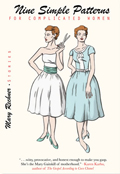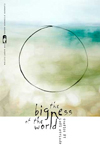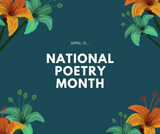 Nine Simple Patterns for Complicated Women is Portland author Mary Rechner’s debut short story collection and also the debut from its publisher, Propeller Books. The book is lovely to behold, well-designed and smart, with French flaps and thick pages with soft ragged edges known in publishing as the deckle. Maybe that seems trivial, but it’s indicative of the care that was taken by a press that isn’t entirely motivated by profit. DeWeese says his press will publish one book a year by a writer that he admires.
Nine Simple Patterns for Complicated Women is Portland author Mary Rechner’s debut short story collection and also the debut from its publisher, Propeller Books. The book is lovely to behold, well-designed and smart, with French flaps and thick pages with soft ragged edges known in publishing as the deckle. Maybe that seems trivial, but it’s indicative of the care that was taken by a press that isn’t entirely motivated by profit. DeWeese says his press will publish one book a year by a writer that he admires.
Rechner’s stories are just as strong as the package they come in. Most of her protagonists are smart women engaging in moments of mischief and brutal honesty. They’re hunkered down with kids and jobs, getting tipsy, looking critically at their lives, wondering if their shoes are silly, remembering how it used to be. If that makes them sound sad, I’m misrepresenting their brand of ambivalence. As Debra Gwartney wrote in a blurb they understand that “to love means to be besieged, to love means to suffer, but, in the end, to love is the only way to truly be alive.”
Rechner’s fiction has appeared in Kenyon Review, Washington Square, Propeller Quarterly, and Oregon Literary Review. Her criticism and essays have appeared in The Believer and The Oregonian. She is a recipient of an Oregon Literary Fellowship, and in 2006, her story “Hot Springs” was printed as a limited edition letterpress chapbook by Cloverfield Press. She is also the director of Portland’s “Writers in the Schools” program.
We asked Rechner a few questions.
 If you were a bookseller arranging a display around your book, what other titles would you put with it? Elizabeth Strout’s Olive Kitteridge, Jennifer Egan’s A Visit from the Goon Squad, Kate Walbert’s A Short History of Women, The Collected Stories of Lydia Davis and Nine Stories by JD Salinger.
If you were a bookseller arranging a display around your book, what other titles would you put with it? Elizabeth Strout’s Olive Kitteridge, Jennifer Egan’s A Visit from the Goon Squad, Kate Walbert’s A Short History of Women, The Collected Stories of Lydia Davis and Nine Stories by JD Salinger.How would you describe it to customers? If I may, I will quote Marlena Watrous, who recently reviewed the book in The Believer. “In her new collection, Mary Rechner dramatizes what it means to these complicated women—mostly mothers—to feel the sand of their identities slipping underfoot, as their primary role becomes helping others develop while they’re still busy doing the same.”
One of my favorite stories in your collection is the one where the narrator is going to the dentist and is lying there thinking about how absurd it is that she’s paying for childcare to have the dentist poke around in her mouth and tell her how bad her teeth are. I’ve been there, and I’m guessing you have, too. This story works in fiction in a way that it wouldn’t as nonfiction. Why do you think that is? In fiction you have the opportunity to explore a character’s internal life: not only what is going on for her in the present moment, but in the past and future as well. Before having children the protagonist of the story, Darla, had autonomy. Now she’s dealing with restrictions. She doesn’t have as much time, money, sex, or mental space as she would like to have. Her heart expands because she loves her children, but being a mother as well as an artist isn’t easy. Though she’s worried about money, Darla’s conflicts are primarily internal. Because I travel in and out of her external and internal worlds, I think I was able to create a story that allows the reader to know Darla fully, and to feel real empathy for her.
You’ve said you’re braver in fiction than in real life. What do you mean by that? In real life I am not looking to escalate conflict and tension; when I write fiction I most certainly am.
I love the cover for your book. Will you tell us about the process of selecting the title and cover art? The first story in my collection, “Pattern,” is about a woman making a dress. The publisher, Dan Weese of Propeller Books, and I started playing around with titles that used the word “pattern” and “women” in it, and I finally came up with Nine Simple Patterns for Complicated Women. “Simple” plays off the famed Simplicity patterns, and “complicated” echoes the ambivalence many of the characters in these stories feel. Dan engaged artist Matt Hall to illustrate the cover. I saw a few drawings along the way and knew they were pefect. Despite the fact that it is 2010, there are days when aspects of my life as a woman feel very “retro” to me. Many of the stories explore this, and Matt’s illustration captures it perfectly.
 Will you play bookseller and recommend some books for us? The Anchor Book of New American Short Stories edited by Ben Marcus, Veronica by Mary Gaitskill, anything by Jennifer Egan. I don’t read a ton of nonfiction but I found Whatever it Takes, by Paul Tough, to be both inspiring and well-written. I just bought a recent Flannery O’Connor Award-winning book of short fiction, The Bigness of the World, by Lori Ostlund, and am excited to read it.
Will you play bookseller and recommend some books for us? The Anchor Book of New American Short Stories edited by Ben Marcus, Veronica by Mary Gaitskill, anything by Jennifer Egan. I don’t read a ton of nonfiction but I found Whatever it Takes, by Paul Tough, to be both inspiring and well-written. I just bought a recent Flannery O’Connor Award-winning book of short fiction, The Bigness of the World, by Lori Ostlund, and am excited to read it.What’s your favorite indie bookstore? It’s a tie between Broadway Books, my super-attentive neighborhood bookstore in NE Portland, and Powell’s on Burnside, located around the block from where I work–perfect for lunch break browsing.


